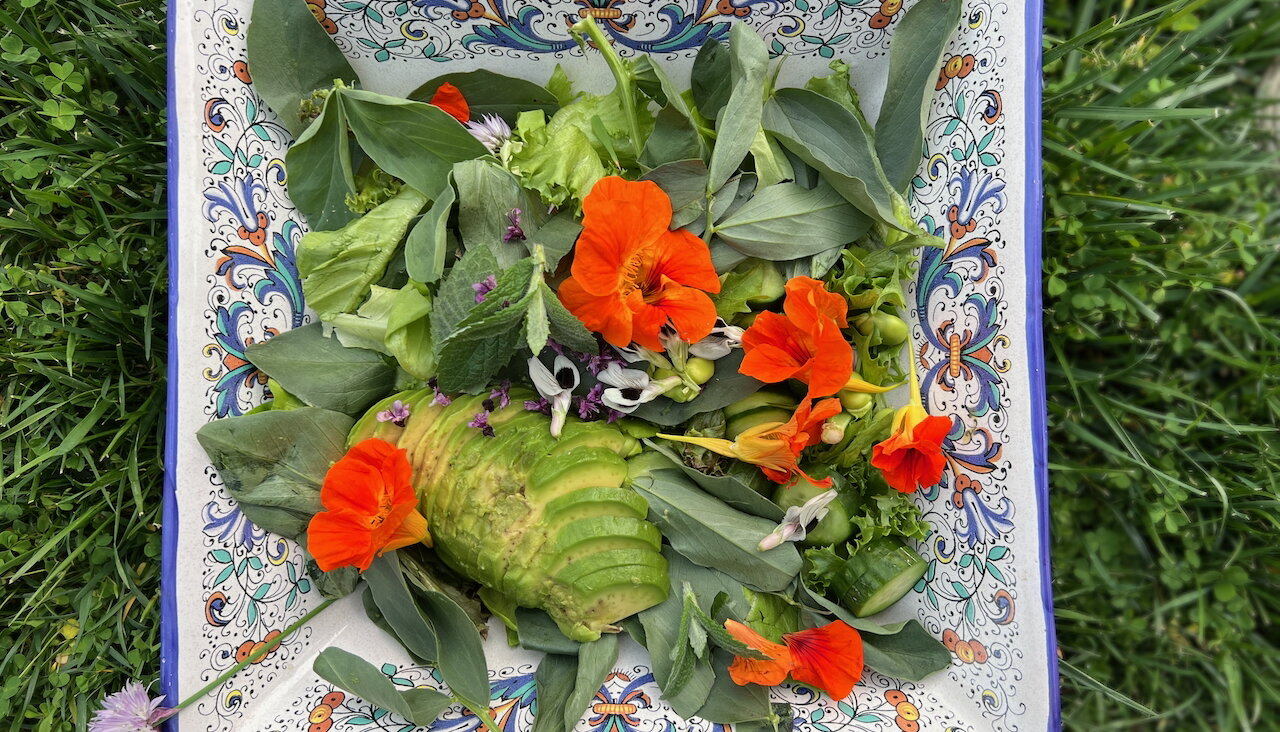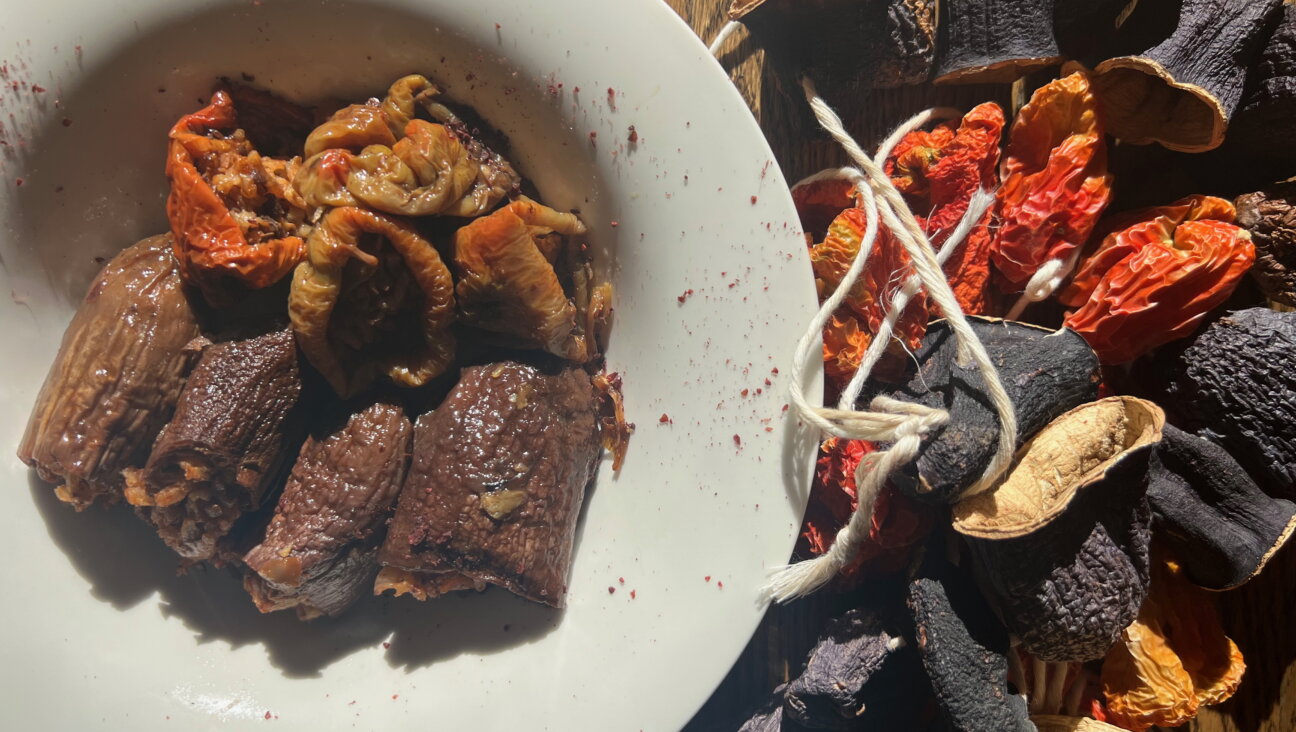Chatting with Herring Young Gun Jacob Frommer

Jacob Frommer loves everything herring. But he’s far from your quintessential old man at kiddush. A 26 year old working in education technology, Frommer began trying herring as a way to connect to Eastern European Judaism of yore and quickly fell in love — seeking out the best herring wherever he goes from shul kiddush to famous dairy delis.
The New Jersey native lives in downtown Manhattan, and while he was raised Modern Orthodox he calls The Big Lebowski his “other bible.” He has not taken the subway in six months, and instead walks or bikes everywhere. He spends the money he saved on cabs, beer, and, of course, herring.
So, you’re a herring expert?
For my age, I’m an expert, but compared to other people, I’m an aficionado. It’s a very small field, you’re frankly up against old Jewish men. They know what they’ve been eating, but they don’t know about herring. They know the difference between schmaltz and matjes, but I’d say I know more than the average old man at your kiddush who’s eating herring.
Why herring?
I love thinking about herring. But similar to how I got into chopped liver, I didn’t like it at first. I just kept trying and trying because I knew that the older generations liked it — I’ve always had a lot of respect for the older generations — so I knew that there was something there that I wasn’t seeing. It didn’t take as long as chopped liver.
What’s your favorite style of herring?
That’s a tough one. Listen, matjes herring is unbelievable. There’s nothing like a good matjes herring. Let me back up: A really good piece of herring allows you to taste the fish itself. And there are a lot of herrings out there that will drown out the flavor of the fish with additives. And that’s fine, because it’s delicious, everyone loves cream, everyone loves a good wine-sauce — whatever it is. And everyone loves jalapeno, that’s like the hottest new thing in this tiny little world of herring.
In the Jewish world, herring may be most conspicuously found at synagogue. Is herring at shul kiddushes generally good?
Depends what town you’re in. In Englewood, it even depends what kiddush you’re at! If you’re at the main kiddush, it’s obviously not going to be so good. The smaller the kiddush, the better it is generally. I just know the guys in Englewood, because that’s where I grew up, and some of those guys take their herring really seriously. Maybe 10 of them.
*Do you make your own?
That’s the biggest question of them all. My best friend Eric Moed and I have been on this journey together. We figured, you know what, let’s make our own for friends and family. We looked at sourcing herring: we were literally pulling New York Times articles from 1984 that your bubbe wrote about how to make herring.
The first problem we ran into is that it’s next to impossible to get a whole herring. We found these fillets in oil, and they were really hard to work with, because you want a herring right out of the sea, which is just salted. Once it’s oiled, you’re basically just putting a sauce on, it’s not really soaking up the flavor. So eventually, we were buying herrings. Very expensive. We were spending $10-$15 on one herring. That’s like spending $30 on a can of tuna, and that’s all that we could find.
How difficult is it to source herring in New York City?
I tried to get Acme to tell me where they source their herring from, they wouldn’t tell me. Chances are they’ve been working with the same guy for 30 years and my guess is that they get it from Scandinavia, right below the Arctic. Everyone’s getting it from there. And with that you need to order a ton. You need to literally order actual tons. There’s something called river herring, which is different than ocean herring: they’re smaller, less fatty, and 95% of that herring caught in Canada and Maine is used for lobster meat. So I contacted a lobsterman that I know, and he just started laughing at me. People don’t give a shit about someone doing 20 pounds of herring.
How protective are herring-mongers of their recipes?
They’re not mean about it. The people I’ve spoken to are very nice. They’ve explained a lot of things, but when it comes to actually apprenticing them, they smell competition, and they’re standoffish. And that is completely justified. My best option is finding a bubbe who does this for fun!
You expressed in an email that herring is an “undervalued and underappreciated delicacy of the sea.” Why don’t people like herring?
Because it’s just not of the times, it’s just not a cool food to eat anymore. In Eastern Europe it was necessity, because back then it was a cheap fish, fatty fish that stayed for a long time because it was salted. It’s not a necessity anymore, but our grandparents and parents are eating it. I think it’s not just because they’re used to it; they like how it makes them feel. I think our disconnect with our past is very much tied up in why people don’t like herring, and I think the reason why Eric and I got into herring is because we have absolute respect for the older generations. All we talk about is being old Jews together, eating herring and liver on our porch… We’re literally trying to eat our way there.
And why won’t people go and try it? Because it’s a disgusting slimy fish at shul, that’s why.
What’s the Best herring in New York?
I don’t know if I want to tell you this, but I cried when I ate Benz’s for the first time, because it was so good. It’s right off of Eastern Parkway in wherever that really religious part of Brooklyn is, right around the corner from 770 [Chabad Lubavitch headquarters]. I walked in — I have pictures — they had full refrigerators full of 50 different types of herring, and I didn’t know what to do. I bought every single flavor, bought a package of Tam Tams, sat down on Eastern Parkway, and it was the greatest piece of herring I ever had in my life.
What do you do when you’re not obsessing over herring?
Well, obsessing over beer and women. I work in education technology, I put tablets in classrooms. That’s what I do.
The Forward is free to read, but it isn’t free to produce

I hope you appreciated this article. Before you go, I’d like to ask you to please support the Forward.
Now more than ever, American Jews need independent news they can trust, with reporting driven by truth, not ideology. We serve you, not any ideological agenda.
At a time when other newsrooms are closing or cutting back, the Forward has removed its paywall and invested additional resources to report on the ground from Israel and around the U.S. on the impact of the war, rising antisemitism and polarized discourse.
This is a great time to support independent Jewish journalism you rely on. Make a gift today!
— Rachel Fishman Feddersen, Publisher and CEO
Support our mission to tell the Jewish story fully and fairly.
Most Popular
- 1

Fast Forward Ye debuts ‘Heil Hitler’ music video that includes a sample of a Hitler speech
- 2

Opinion It looks like Israel totally underestimated Trump
- 3

Culture Cardinals are Catholic, not Jewish — so why do they all wear yarmulkes?
- 4

Fast Forward Student suspended for ‘F— the Jews’ video defends himself on antisemitic podcast
In Case You Missed It
-

Culture How one Jewish woman fought the Nazis — and helped found a new Italian republic
-

Opinion It looks like Israel totally underestimated Trump
-

Fast Forward Betar ‘almost exclusively triggered’ former student’s detention, judge says
-

Fast Forward ‘Honey, he’s had enough of you’: Trump’s Middle East moves increasingly appear to sideline Israel
-
Shop the Forward Store
100% of profits support our journalism
Republish This Story
Please read before republishing
We’re happy to make this story available to republish for free, unless it originated with JTA, Haaretz or another publication (as indicated on the article) and as long as you follow our guidelines.
You must comply with the following:
- Credit the Forward
- Retain our pixel
- Preserve our canonical link in Google search
- Add a noindex tag in Google search
See our full guidelines for more information, and this guide for detail about canonical URLs.
To republish, copy the HTML by clicking on the yellow button to the right; it includes our tracking pixel, all paragraph styles and hyperlinks, the author byline and credit to the Forward. It does not include images; to avoid copyright violations, you must add them manually, following our guidelines. Please email us at [email protected], subject line “republish,” with any questions or to let us know what stories you’re picking up.















